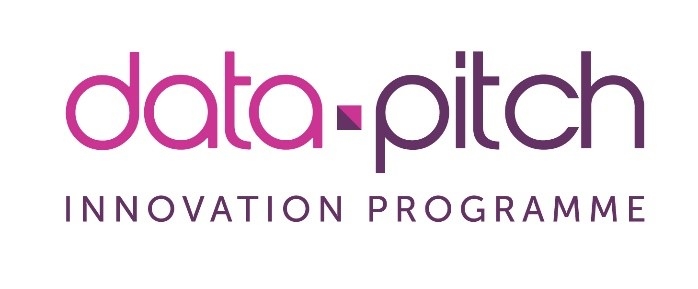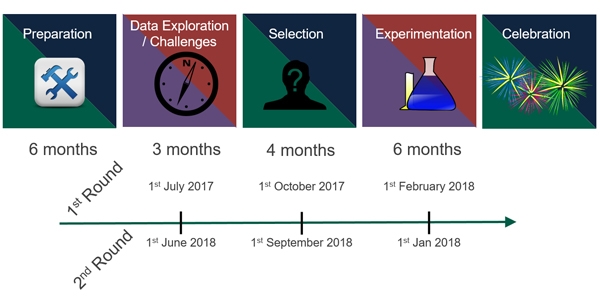Geodemographics - blogs and resources
Visit the Geodemographics Knowledge Base (GKB) for expert blogs and links to useful sources of geodemographic data and knowledge.

In modern society, people, data, and computing power are entangled. Using high performance computing, massive datasets generate new opportunities to serve people who are both producers and consumers of data.
For instance, Gartner, Inc. forecasts that 8.4 billion connected things will be in use worldwide in 2017, up 31 percent from 2016, and will reach 20.4 billion by 2020; while total spending on endpoints and services will reach almost $2 trillion in 2017[1]. Within the same trend, the global Smart Cities market is projected to grow by 22.5% (reaching 1.1 trillion USD) from 2014 to 2019.[2] Earlier in the digital age, data was primarily used in supporting business transactions and decisions; as we advanced into the 21st century, it gradually became a good in itself, which could be monetised internally or even traded. With Big Data came Big Value; the opportunities created by data increased tremendously, as these included not just its current use, but, more importantly, all its potential uses in a global network of business partners and customers.[3]

DataPitch is a European funded project aiming at creating a European data innovation ecosystem that will bring together data owners and Big Data technology providers, with startups and SMEs with fresh ideas for data-driven products and services.
DataPitch strengthens the European data economy by creating a virtual cross-sector European Data Innovation Lab, in which organisations can jointly explore novel solutions to real-world challenges using data. DataPitch provides an innovation space that offers the technical, legal, and ethical infrastructure for organisations owning data to be able to share it safely, securely, and responsibly; and facilitates and nurtures partnerships of these data providers with micro, small, and medium size entrepreneurs to develop new business ideas and co-create value. The most promising start-ups and SMEs will receive financial (up to €100K), technical, legal, marketing, and commercial assistance to turn early-stage concepts into minimum viable products, secure new business, and enter new markets.
DataPitch is organised in rounds of challenges that stay open for 3 months to select the best applicants, please see image below. A fair selection process that includes independent reviewers then follows. A 6 month experimentation process is subsided by DataPitch to create an early prototype showing the ability of the proposed approach to solve the given business problem
 Figure 1: DataPitch Innovation Process
Figure 1: DataPitch Innovation Process
Two types of challenges are defined: exploratory or industry-driven.
The industry-driven challenges are created around defined datasets and the applicants just need to propose the best solution to address a business problem. The exploratory challenges cover broader areas and do not mandate a specific dataset over which a business problem is defined. It is for the applicant to provide one or more significant private datasets and explain how these could be used to address the challenge. In both cases, the proposed solutions are meant to be really innovative and possibly disruptive, as well as portable across data providers and domains.
There are many ways a person or a company can contribute to the DataPitch ecosystem ranging from providing datasets and shaping challenges, to participating in them. Just pick the role suitable for you.
The DataPitch consortium (see image below) brings together organisations that cover the entire data innovation life cycle, with high expertise in Big Data technologies and in the creation and growth of data-driven businesses.

Figure 2: DataPitch Consortium
The DataPitch partners are at the forefront of the data revolution in their countries, and at European and international levels. They have an impressive track record in the kinds of open and corporate innovation activities that are central to set up a sustainable trans-national, cross-organisation, cross-sector data lab. They have the network and means to reach out to hundreds of thousands of data-minded entrepreneurs with fresh, promising business ideas. They have the operational capacity and experience required to run public funded projects with broadly distributed competitive calls involving thousands of applications.
Stay tuned for the call opening on : 1 July 2017. Please visit: datapitch.eu
@data_pitch
|
Stefano Modafferiis a Senior Research Engineer and Project Manager at the IT Innovation Centre. He has a Ph.D. in Information Engineering from Politecnico di Milano, followed by several years’ experience in industry prior to joining IT Innovation in 2012. His core interests are in Process Management, Service Oriented Architecture, Information Modelling and Software Architecture. He has over 20 scientific publications and has TOGAF Enterprise Architecture, Prince2 Project Management, and BCS Business Analysis Certifications. For more information please email: sm@it-innovation.soton.ac.uk. |
Any views or opinions presented are solely those of the author and do not necessarily represent those of the MRS Census and Geodemographic Group unless otherwise specifically stated.
[1]http://www.gartner.com/newsroom/id/3598917
[2]http://www.marketsandmarkets.com/PressReleases/smart-cities.asp
[3]http://www.mckinsey.com/business-functions/mckinsey-digital/our-insights/digital-globalization-the-new-era-of-global-flows
The free online CSS code beautifier takes care of your dirty code and strips every unwanted

Visit the Geodemographics Knowledge Base (GKB) for expert blogs and links to useful sources of geodemographic data and knowledge.


Our newsletters cover the latest MRS events, policy updates and research news.
0 comments